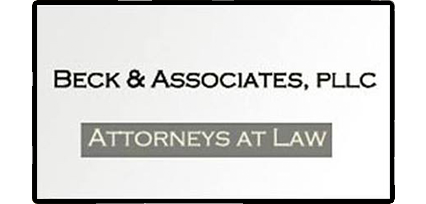What is Probate?
Probate is a court proceeding relating to a decedent’s estate (i.e. their property). A probate proceeding consists of two prongs. First Prong: Under the first prong, the court will determine who now owns the decedent’s property. (a) If the decedent is believed to have a Will, the court will determine whether or not the document purported to be the Will is, or is not, the valid Will of the decedent. If the document is found to be the decedent’s valid Will, it will generally state who receives the decedent’s property, and how they receive it. (b) If the decedent is found to have died without a Will, they are said to have died “intestate” and the court will determine who are the decedent’s heirs-at-law under the statutes of the Texas Estates Code. Essentially, if you die without a Will, the state of Texas will write one for you. There is also a good chance you won’t not like what it says. Who receives the decedent’s property as the heirs-at-law will depend on several factors such as: (i) Whether or not the decedent was married. (ii) If the decedent was married, whether or not the decedent’s property is classified as separate or community property. (iii) If the property is characterized as community property, whether or not the decedent had a child who is not also the child of the surviving spouse. Second Prong: The second prong is to determine whether or not an administration of the decedent’s estate is necessary. If the decedent’s debts and estate administration expenses need to be paid, the court will appoint a personal representative to do so as part of the estate administration. If an executor is named in a Will, the personal representative is called the executor. If there is not an executor named in a Will, the personal representative is called the administrator. The names may be different, but they both have the same job. In many circumstances an estate administration can be said to be “independent” meaning there is less court involvement during the administration.
Read moreTrust Planning for Your Minor Child
Being a father of minor children, I often am so busy running, chasing or sneaking to take a nap that I often find it difficult to do much else, including eat, sleep and work. But as a parent, I have to consider what will happen to my assets and my children if something were to happen to my wife and me. Such a question is often not so easy to resolve and many of the options which come to your mind instantly may not be the best options. Often times I hear parents say that they have changed all of their beneficiary designations for their insurance policies and financial accounts to name their minor children as contingent beneficiaries. The downside of designating minors as beneficiaries, is that minors cannot legally own or manage property, only an adult person with legal capacity can. In response to being told that minors cannot own property, I may be told, well can I just designate my relative or a close personal friend as the beneficiary of my assets, and they can manage and distribute the assets as they see fit to my children. The concern with that scenario, is that the relative or the close personal friend will be treated for legal and tax purposes as the owner of the account, and any assets distributed by this person to your children may be treated as a gift. Moreover, if this person begins to treat some or all of these assets as theirs then a legal battle would likely ensue with unpredictable results. To alleviate such issues arising, parents of minor children should consider implementing trusts for their children into their estate plans. By implementing children trusts into their estate plans, a parent would be creating a legally defined and enforceable relationship between a “trustee”, the person who manages the trust assets, and the “beneficiaries”, who are your children that are entitled to distributions under the trust from the trustee. The terms of the trust for your children can be customized. That is, you can define for what purposes a trustee can make distributions to your children. You can even decide to implement a trust which terminates automatically at a certain age, which you can pick. Or as an alternative, you can create a trust which continues for the lifetime of a child. A lifetime trust can be very beneficial for a child even when he or she reaches adulthood because a lifetime trust generally provides asset protection from a child’s personal creditors, judgments or a later divorce. You would even have the ability to designate when your children could serve as his or her own trustee to manage and control their trust and determine when to make distributions. I am here to assist you with providing you with options to consider for your estate plan and guidance in choosing the estate plan that best fits your family, including Trusts for your children. Please contact me to schedule an appointment to discuss further.
Read moreBlended marriages: The Unintended Consequences of Dying without a Will or Trust
Sadly, the rules of descent and distribution which apply if someone dies without a will or trust may provide an unexpected outcome. It has been our experience that many people have common misunderstandings regarding how these rules are applied and are unaware of nuances which modify distributions under specific circumstances. In this day and age of mixed and blended families, it is unlikely that anyone would want old statutory descent and distribution laws to control who receives or manages assets earned over a lifetime of hard work. A common misconception we encounter is that many people believe their spouse will inherit everything when they die intestate (without a valid will or a valid trust which otherwise fully disposes of his or her assets), which is often their underlying intention. However, that is simply not always the case in Texas. Pursuant to the rules of descent and distribution, if you die intestate and have children from outside your current marriage, then your half interest of all community property in your marriage will be shared amongst your children instead of being passed along to your surviving spouse who owns the other half. Under most circumstances, this is an unwelcome result for the surviving spouse who now owns their homestead with their deceased spouse’s children, whom likely cannot share in payment of the mortgage, upkeep and other related expenses. Then without a judicial partition or the agreement of deceased spouse’s children who are co-owners, the surviving spouse will likely not be able to sell the marital homestead. This situation is further complicated if any of the deceased spouse’s children are minors, because minors lack the legal capacity to consent to the sale of their real property which must be granted to an adult through judicial means and with court supervision, which will likely substantially increase the time and cost involved in selling real property. The complications only become worse if the deceased spouse dies intestate owning separate property, which generally speaking could include property acquired by gift, inheritance, or before marriage. Under such circumstances, the deceased spouse’s children will inherit two thirds of any personal separate property and the entirety of your separate real property owned by the deceased spouse, while the surviving spouse only receives a life estate in one third of the separate real property. That is, the home you lived in believing it was yours, may actually be owned by your spouse’s children. And if your spouse did not have children, you may be sharing ownership with your spouse’s parents and/or their descendants. Imagine a situation where your husband or wife dies without a Will and has two minor children who live with their other parent…your spouse’s ex. Those children, controlled by their custodial parent, now own half of your spouse’s community property assets and an even larger percentage of your spouse’s separate property assets. This can be a nightmare come true for any widow or widower who instantly loses half of their estate. These are not the sorts of results most people envision or could even fathom. The attorneys at Beck & Associates, PLLC stand ready to […]
Read more


